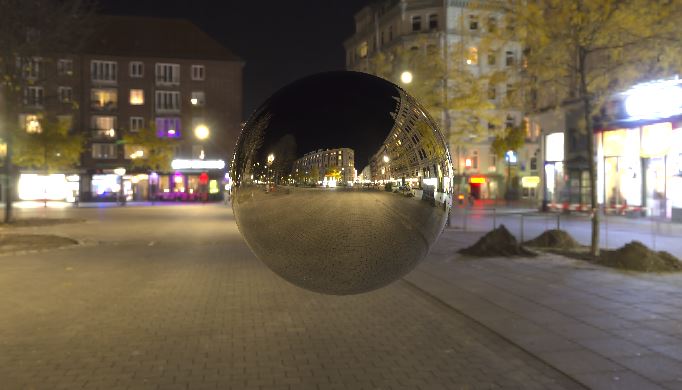PBR Surface
3D Renderer - Surface Physically-based rendering

This renderer will display the surface of your 3d object using Physically-based rendering.
In this type of rendering, the material is defined through a standard set of textures named Albedo (Base Color) , Metallic , Roughness , Normal , Emissive and Occlusion and described below.
Each of those textures can either be a Uniform , or a still image, a video, a compo or any type of other 2D Generator .
Check the Environment Light to easily add overall lighting to your 3D scenes when using the pbr surface renderer.
Variables:
- Blending Mode: How this pbr surface gets blended
- Depth Buffer: Depth-buffer related settings
- Metallic Factor: An overall metallic factor
- Roughness Factor: An overall roughness factor
- Albedo: This is the base color for the material, also known as Base Color or Diffuse
- Metallic: How reflective the material looks like. Use a white Uniform for a perfectly reflective material
- Roughness: How much the material spreads the light. When black, the light is not spread at all, when white the light is maximally spread
- Normal: The normal map encodes small deformations of the normal direction that are performed on per-pixel basis
- Emissive: The emissive light corresponds to auto-illumination: it’s emitted from the material whatever the external lighting conditions are
- Occlusion: The ambient occlusion textures enables to darken zones of the 3D objects in order to simulate occlusions due to ambient lighting
Python
Oil.createObject("PBRSurfaceGeometryRenderer")


